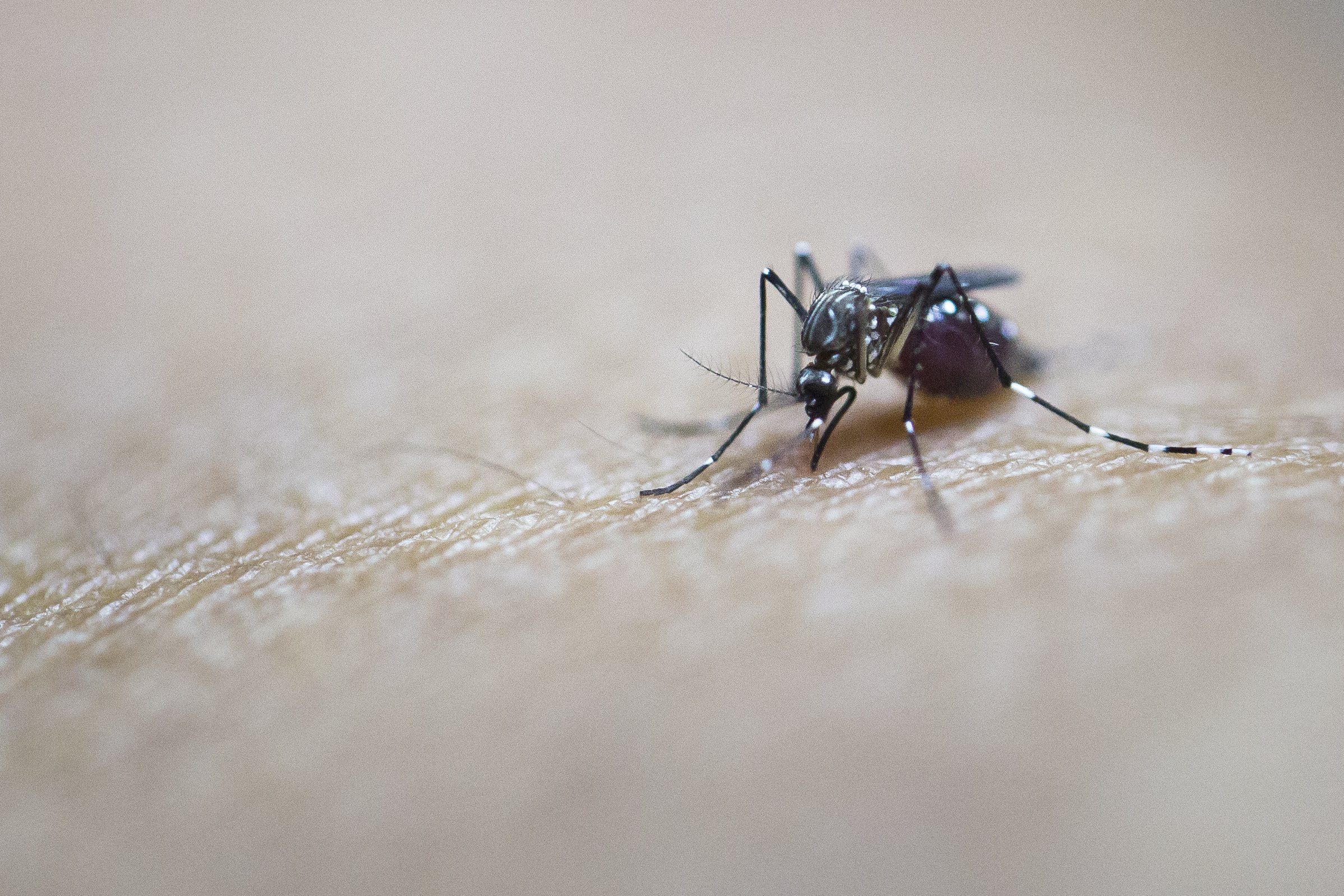
When mosquitoes bite you, hundreds of different proteins present in their saliva enter your bloodstream, in addition to any pathogens they may be carrying.
Some of these proteins help the mosquito to suck blood from you. But they may also have more wide-ranging effects, increasing the severity of any diseases that the mosquitos are carrying by causing a significant immune response that can last for days after a bite, according to new research.
In a new study, published in the journal PLOS Neglected Tropical Diseases, scientists from Baylor College of Medicine examined the effects of mosquito bites on human immune cells. To do this they bioengineered mice using human stem cells, which effectively gave the rodents some features of a human immune system. These features included a complete set of human white blood cells, including the so-called 'T cells' that fight disease.
The mice were bitten by mosquitoes uninfected with any pathogens in a lab environment. Afterwards, the scientists analyzed any change in the functioning of the humanized immune cells.
They found that the mosquito spit alone produced an immune response involving more types of cells and lasting far longer than expected. In fact, the scientists detected immune cells traveling to the site of the bite up to seven days after it occurred. Furthermore, the immune response was observed in various tissue types, including the blood, skin and bone marrow.
"The biological significance of these changes remains to be determined, but it might explain how some pathogens, such as viruses, can spread through the body in these cells, replicate to higher extents, and even remain in some tissues for far longer than detected in blood," the researchers wrote in the study.
Previous studies have also indicated that some properties of a mosquito bite, including its saliva, may exacerbate diseases that the insects carry.
For example, mouse experiments have shown that infections caused by a mosquito bite are often more severe than those caused by injecting the same parasite with a needle. However, whether or not the results of previous studies looking into this issue would translate to humans is an open question, as the experiments used bioengineered mice that provide a less accurate model of our immune system in comparison to the mice used in the latest study.
Mosquitoes and the pathogens they transmit are a growing public health concern. Around the world, 750,000 people die every year from mosquito-borne diseases—including malaria, dengue, West Nile, Zika and chikungunya.
Treatment options are often limited for these diseases and their incidence is only expected to rise in the next few decades, as the host ranges of multiple mosquito species increase due to climate change.
"Understanding how mosquito saliva interacts with the human immune system not only helps us understand mechanisms of disease pathogenesis but also could provide possibilities for treatments," the researchers wrote in the study.
"If we know which mosquito saliva components enhance pathogenesis of diseases, we could create a human vaccine to counteract these effects for multiple infections," they said.
Uncommon Knowledge
Newsweek is committed to challenging conventional wisdom and finding connections in the search for common ground.
Newsweek is committed to challenging conventional wisdom and finding connections in the search for common ground.
About the writer
Aristos is a Newsweek science reporter with the London, U.K., bureau. He reports on science and health topics, including; animal, ... Read more
To read how Newsweek uses AI as a newsroom tool, Click here.








